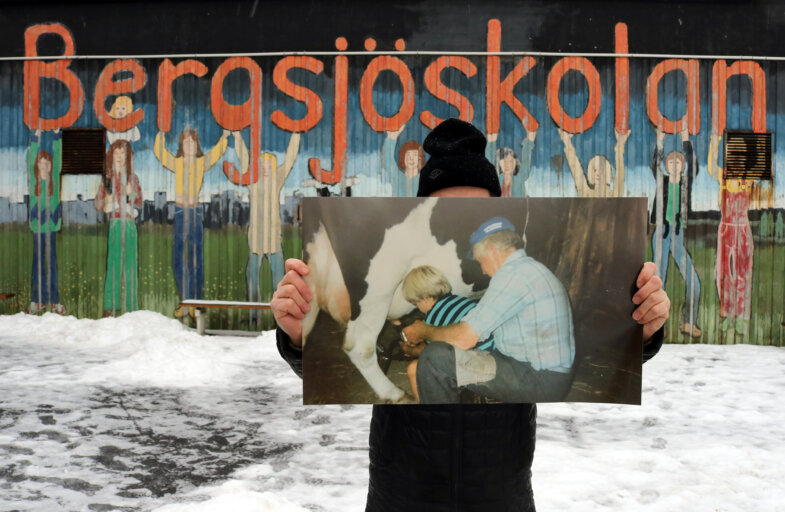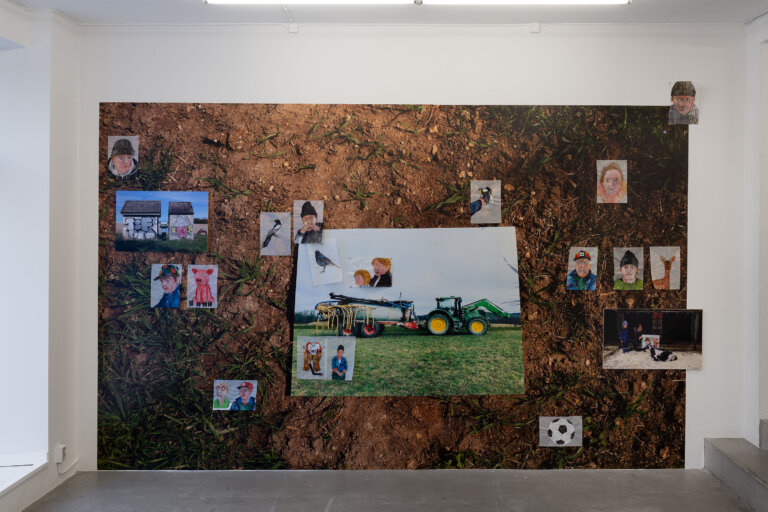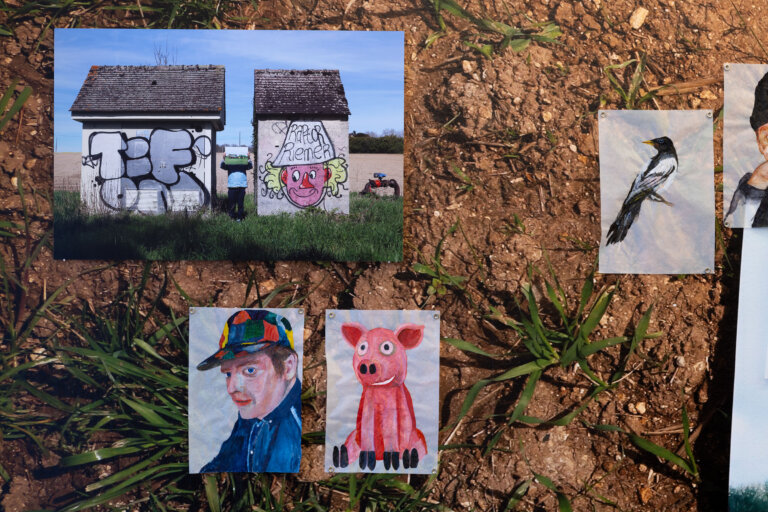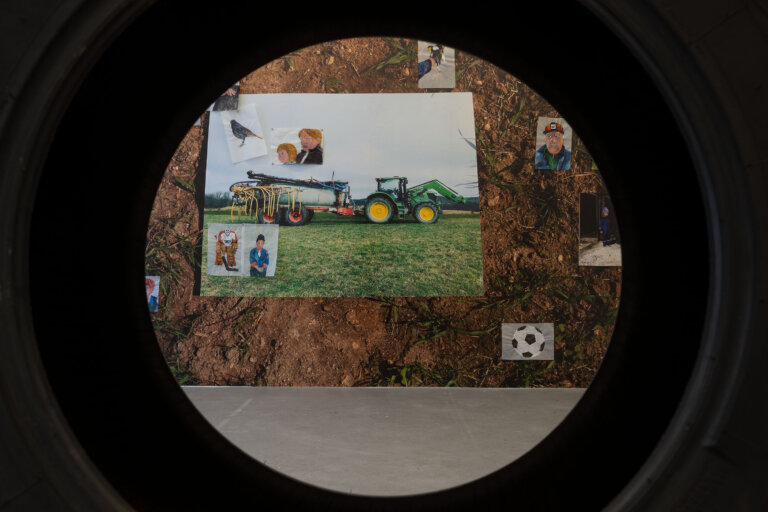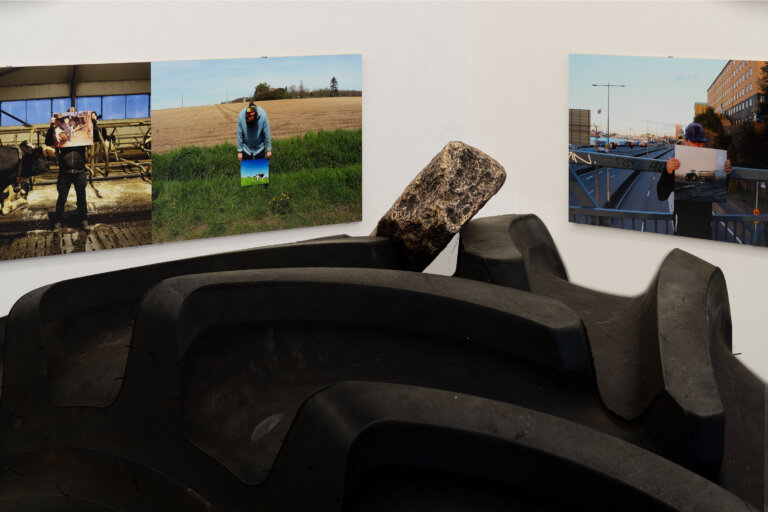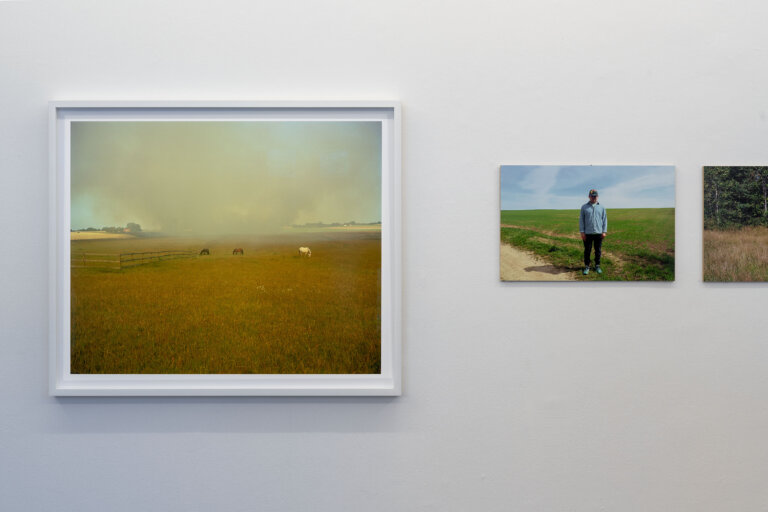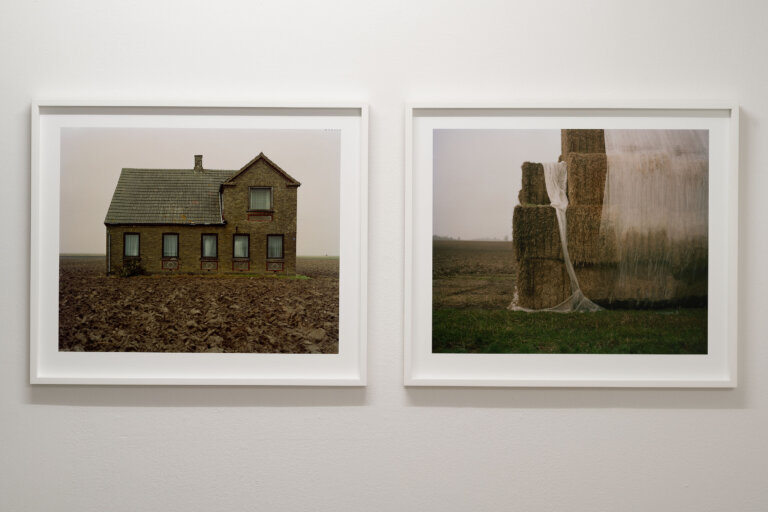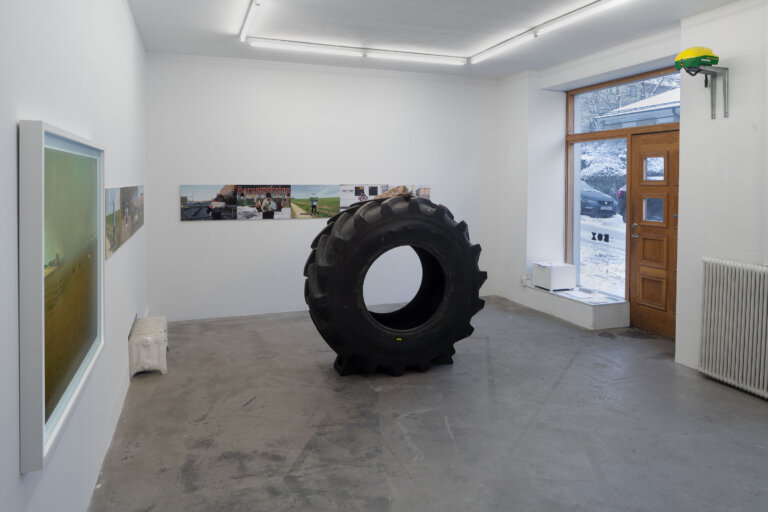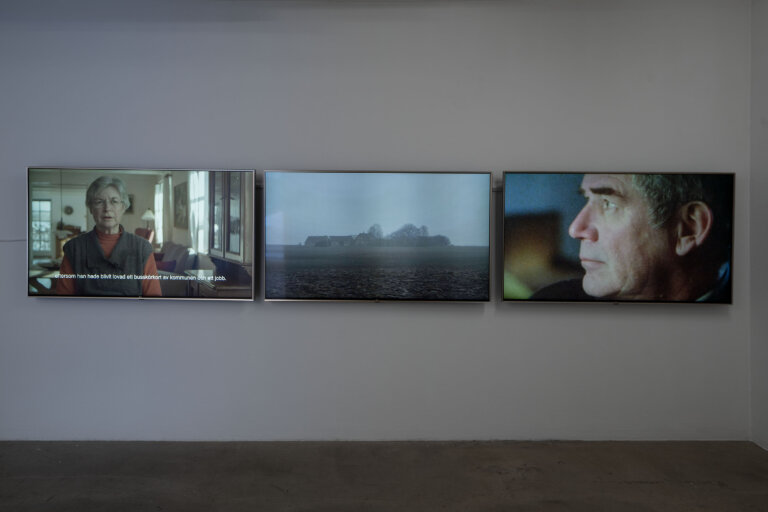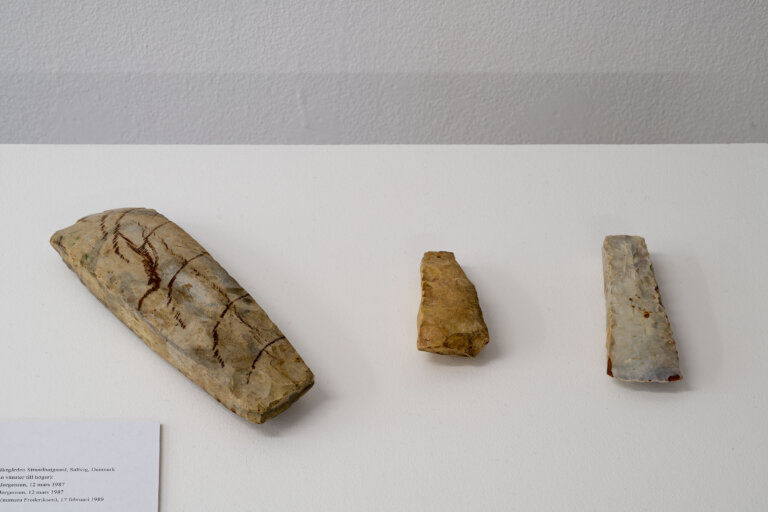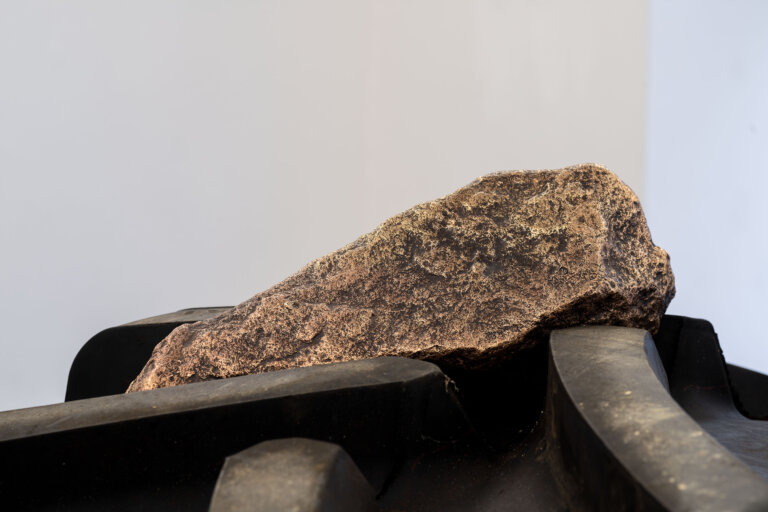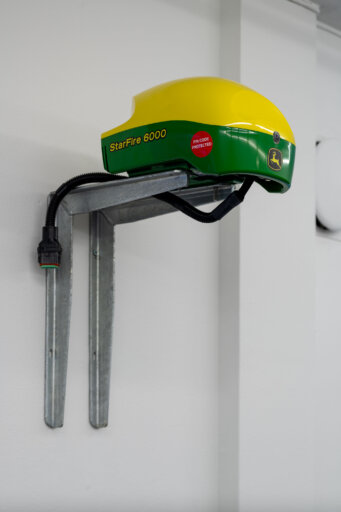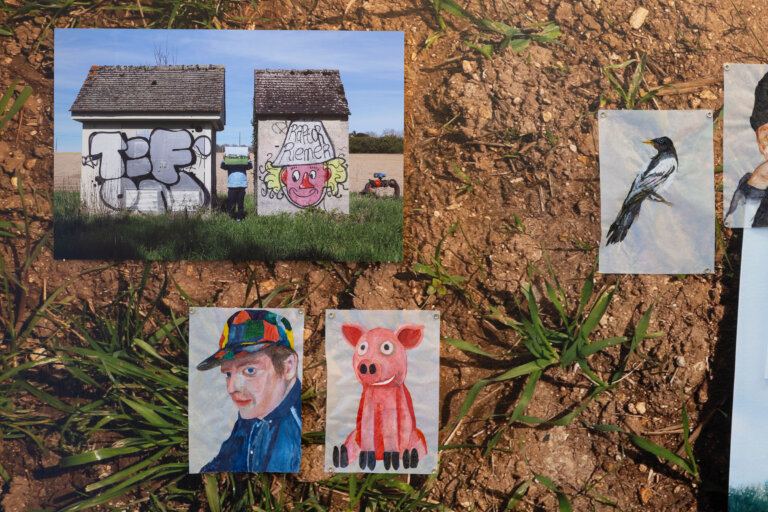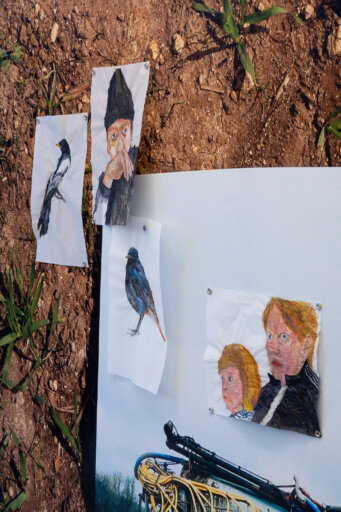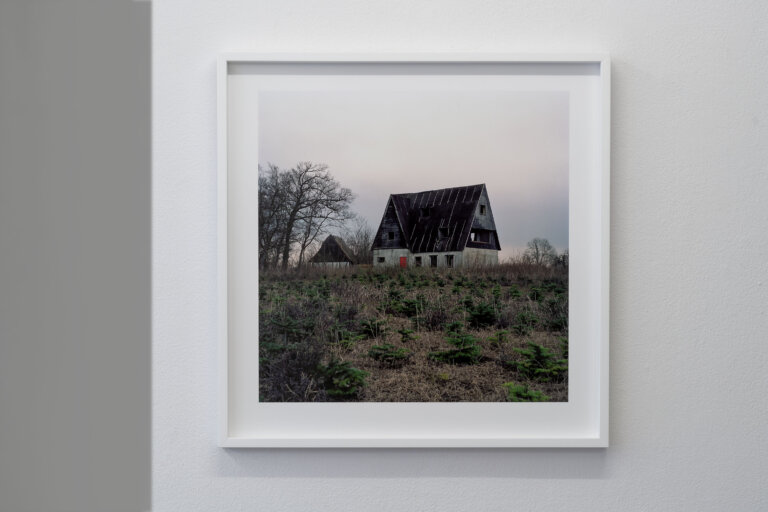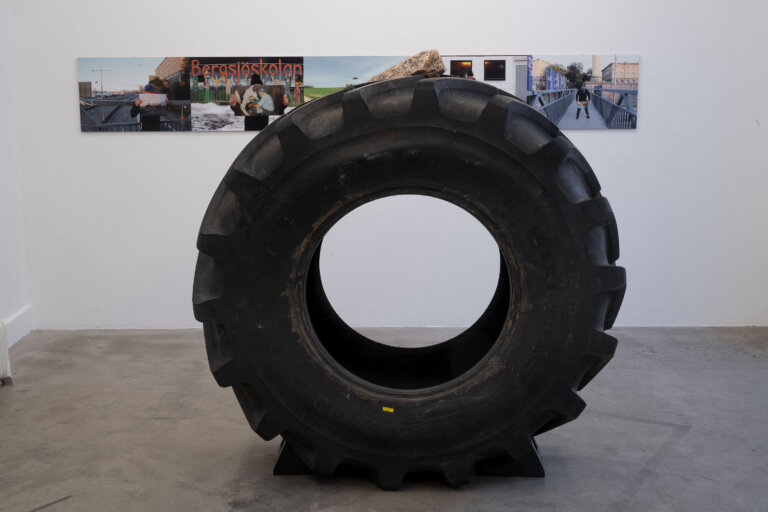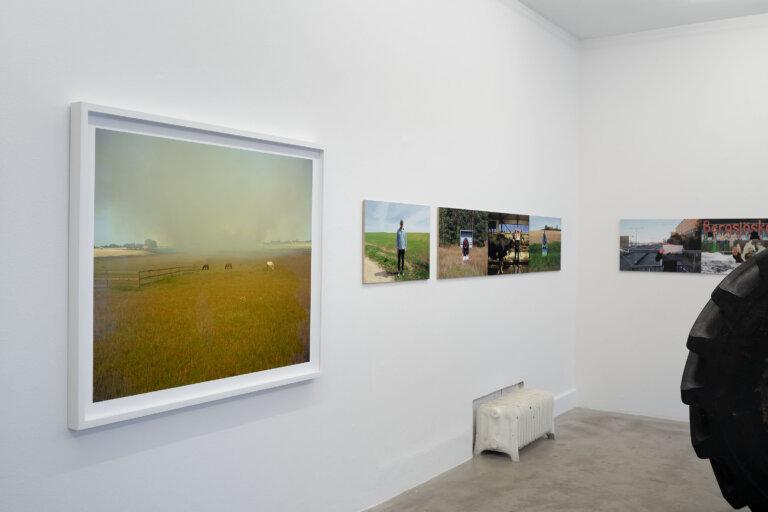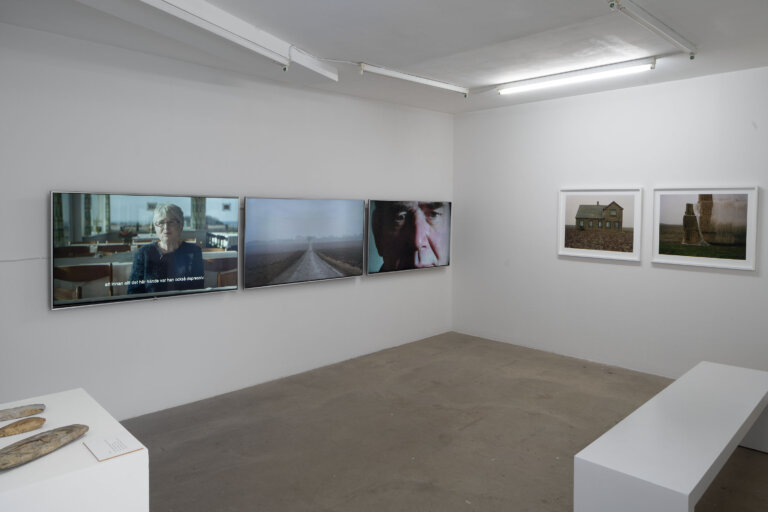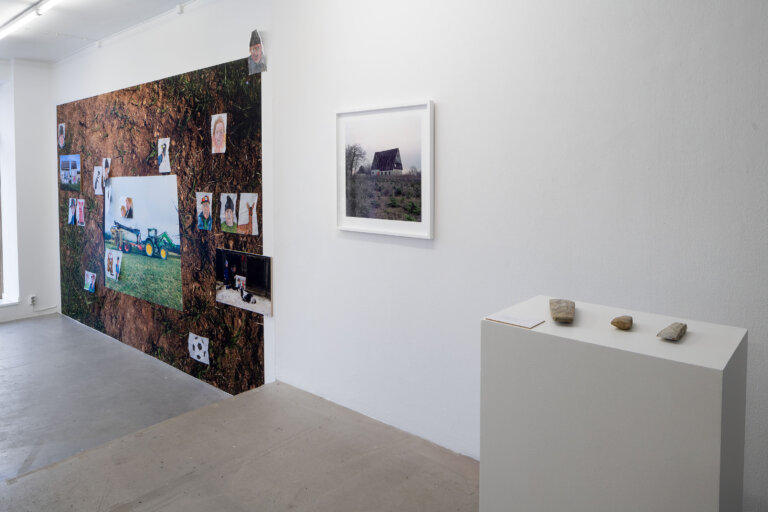The exhibition MARKEN (“the ground”) gives insight into the work of two artists, who have, and have had a life circulating around agriculture, living in the countryside. MARKEN tells us about an underrepresented theme in contemporary art. Marcus Jonsson grew up in Bergsjön in Gothenburg and in addition to his work as an artist, he is also a part-time farmer. Henrik Lund Jørgensen grew up on a farm in Lolland in Denmark. As Marcus Jonsson started working on a farm outside Gothenburg as a teenager in the mid 90s, Henrik Lund Jørgensen took the opposite route when he, as an 18-year-old, left his father’s farm and went to the city to study art. Together they cover the whole experience of life on a farm and in the countryside from 1975 until today in Sweden and in Denmark. Through painting, installation, sculpture, photography and film, stories are constructed that take personal aspects as a starting point, but at the same time provide insight into the historical development of life in the countryside and in the province.
A historical example is how the cultivation of sugar beets rationalized agriculture and changed the landscape. In some areas the beets were called “white gold”. The name became a strong local identity, but would over time employ fewer and fewer people. In this context, contact with fields and the landscape also disappeared. The physical understanding of soil and crops has been relegated to the background, or as Henrik Lund Jørgensen highlights in his video work; we no longer walk in the fields but look at them.
The exhibition is intended to give an overall impression of life on a farm. The perspective is twisted and the gaze is directed from the countryside towards the city. Marcus Jonsson has previously worked with his dual identity as both artist and farmer. In a biographical way, he has tried to let these two different lifestyles meet and challenge the viewer in what a reality must necessarily look like. Since 2013, Henrik Lund Jørgensen has worked parallel in his artistry with a film and art project that deals with his father’s death and the subsequent time, when he, as an only child, inherited the farm and had to reflect on how he would take it on.
Hendrik Zeitler
